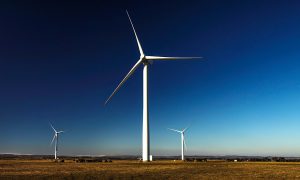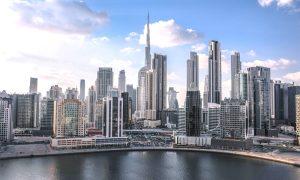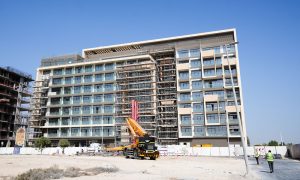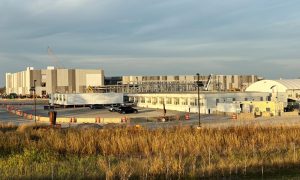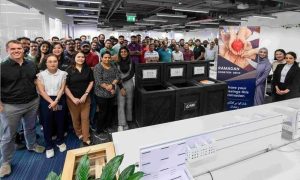ABB supports Egyptian project to turn desert into farmland
Electrical products and solutions provider supplier provides key technical solutions to ensure reliable power supply to Toshka region

ABB has provided several key technical solutions to deliver electric power reliably and continuously to kickstart the development plan for Toshka’s new agricultural area in the South Valley, the electrical products and solutions provider has said.
According to a statement by ABB, Egypt’s President Abdel Fattah Al-Sisi is launching a groundbreaking initiative that aims to reclaim an area of more than 2,200 sqkm of desert by 2024 in the South Valley of the Toshka area. It will boost agricultural production in accordance with the state’s efforts to encourage investment and create job opportunities through agricultural activity, food manufacturing and associated urban activities. The development will also establish new and integrate existing communities in parallel to the Nile Valley, but most importantly will greatly support the efforts to assure food security and achieve wheat self-sufficiency for Egypt.
ABB said that it has supplied all medium voltage primary and secondary switchgear, UniGear and UniSec, along with compact substations for the first three phases of the project. The total contract value is US $4.8 million and will guarantee the power supply for irrigation systems and related services stretching across more than 400 km2 of reclaimed land in the Toshka desert.
“We are proud to be part of this mega project which aims to create sustainable development and a better future for the people of Egypt. We are glad to provide the latest technology for the communities of Toshka which will help them achieve balanced economic success, environmental stewardship and social wellbeing to benefit their present and future”, said Loay Dajani, Country Managing Director, ABB, Egypt.
ABB has also delivered complete solutions to provide reliable, energy-efficient operation for the project’s 57 pumping stations. This included the installation of hundreds of motors, variable speed drives (VSDs) and soft starters. ACQ580 water dedicated VSDs play a key role by matching the speed and torque of the electric motors to the pumping demand, thereby offering significant energy savings, typically from 30 to 50 percent compared to conventional equipment.
“Working on national mega projects is a matter of pride for us. Thanks to ABB’s well-established presence in Egypt, with distinguished manufacturing facilities and professional teams, we were able to deliver all required equipment in record time and provide high-quality advanced solutions and capabilities, demonstrating our eagerness and readiness to support vital sectors in the country,” commented Mohamed Salem, Local Division Manager, ABB Distribution Solutions Electrification.
ABB has a long-term business relationship with Madkour Group, the main contractor for the project, working across many infrastructure projects across Egypt in the energy and water sectors. The team faced numerous challenges related to this particular project but thanks to ABBs expertise and commitment to a customer first approach, the project stayed on schedule and met site-specific requirements with high quality performance solutions, as well as efficient logistics, operations and installation.
Ahmed El Gazzar, Supply Chain Director, Madkour said: “The Toshka project is a strategic vision that will take Egypt to higher horizons by making a long-envisaged dream come true. The scope of work provided by ABB adds great electrical capabilities to the national grid, supports the development of agricultural infrastructure and provides the latest technologies and support for years to come. This will empower Egyptian mega projects such as
Toshka to achieve comprehensive development and provide a decent life and a better future for the Egyptian people.”
The Toshka agricultural project is located near to the Toshka canal and will create an area of more than 2,200 km2 of cultivated lands (reaching 4,200 km2 in the future), which will be irrigated with water from local sources including the Nile via the Sheikh Zayed canal.




